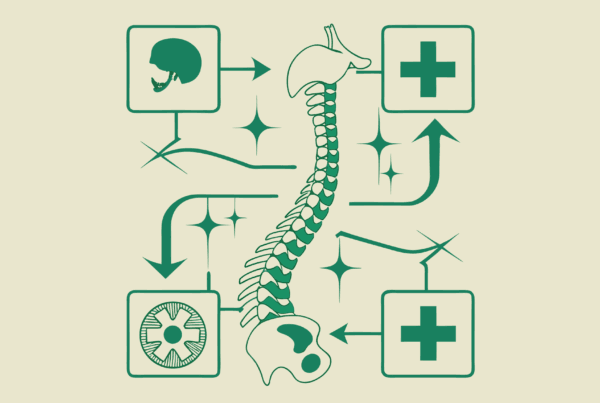Selling your Med Spa is one of the most significant financial decisions you will make. In Delaware, the market for aesthetic practices is active and full of opportunity. But a successful sale depends on more than just finding a buyer. It requires understanding your practice’s true value, navigating state-specific rules, and preparing for the transition. This guide provides a clear overview to help you start planning your strategy.
Delaware’s Med Spa Market Overview
The market for Med Spas in Delaware is currently strong. We are seeing significant interest from buyers who are attracted to the state’s favorable demographics and steady demand for cosmetic and wellness services. This is not just a local trend. It is part of a national consolidation wave where well-run aesthetic practices are seen as valuable assets.
This strong buyer appetite comes from two main groups: private equity firms looking to build regional platforms and established multi-site practices seeking to expand in the Mid-Atlantic. For you, this means there is likely more than one potential partner for your practice. Creating a competitive process among these buyers is the key to achieving a premium valuation.
Key Considerations for Delaware Sellers
Beyond the market, you need to look inside your own practice. Buyers will examine every detail. Focusing on the right areas beforehand can significantly strengthen your position. Here are a few things to consider:
- Navigating Delaware’s Legal Rules. Delaware, like many states, has regulations around the Corporate Practice of Medicine (CPOM). This can affect how a sale is structured, especially with non-physician buyers like private equity. A transaction must be designed to comply with these rules.
- Your Team is an Asset. Your skilled injectors and aestheticians are a huge part of the practice’s value. Buyers will want to see that your key team members are likely to stay after the sale. Having clear employment agreements and a positive work culture is a major selling point.
- Owner Dependence. Does the practice rely heavily on your personal brand and skills to attract and retain clients? A business that can run successfully with other providers is typically more valuable to an outside investor. We often help owners build systems that reduce their day-to-day operational role.
Current Market Activity
We are seeing a significant number of transactions in the aesthetics space, and Delaware is no exception. Private equity groups are particularly active. They are often looking for a successful “platform” practice–a strong, reputable Med Spa they can invest in and use as a base for acquiring other practices in the region. This trend is driving demand and pushing valuations higher for the most attractive practices.
What does this mean for you? It means that if your Med Spa is well-managed and profitable, you will likely have multiple interested parties. However, you will only see the best offers if you run a structured, confidential process that creates competition among buyers. Simply taking the first offer that comes along almost never results in the best outcome. The key is positioning your practice to attract the right kind of attention from the very beginning.
The Sale Process Unpacked
A professional sale process follows a clear path designed to protect your confidentiality and maximize your outcome. While every deal is unique, the journey generally follows these stages.
Phase 1: Preparation
This is the most important phase, and it should start long before you plan to sell. It involves cleaning up your financial records, organizing key documents, and getting a professional valuation to understand what your practice is worth. This is also when we work with you to craft the story that highlights your practice’s strengths and growth potential.
Phase 2: Confidential Marketing
Once prepared, we confidentially approach a curated list of qualified buyers. We don’t “list” your practice publicly. Instead, we run a discreet process, sharing information only with vetted groups who have signed non-disclosure agreements. The goal is to generate interest from multiple parties at the same time.
Phase 3: Diligence and Closing
After you select the best offer, the buyer begins due diligence. They will closely examine your financials, contracts, and operations. This is where many deals encounter problems if preparation was weak. With proper planning, this stage is smooth. We manage this process for you, leading to a successful closing.
What Is Your Med Spa Actually Worth?
One of the first questions every owner asks is, “What is my practice worth?” The answer is more complex than a simple percentage of revenue. Sophisticated buyers value your practice based on its profitability and future potential, not just its top-line sales.
The key metric is Adjusted EBITDA (Earnings Before Interest, Taxes, Depreciation, and Amortization). Think of it as your true cash flow. We calculate it by taking your net income and adding back owner-specific expenses, like a personal car lease or an above-market salary. This shows a buyer the profit the business would generate under their ownership. That Adjusted EBITDA figure is then multiplied by a number called a “multiple” to determine the practice’s enterprise value. The multiple isn’t random. It is influenced by several factors.
| Value Driver | Lower Multiple (Less Attractive) | Higher Multiple (More Attractive) |
|---|---|---|
| Provider Model | Relies entirely on the owner | Diverse team of skilled providers |
| Service Mix | Primarily basic, low-margin services | High-margin, recurring revenue services |
| Scale & Profit | Lower annual profit (e.g., <$500k) | Higher annual profit (e.g., $1M+) |
| Growth | Flat or declining revenue | Consistent, documented year-over-year growth |
Planning for Life After the Sale
The final closing documents are not the end of the story. A successful transition is one that aligns with your personal and financial goals. What do you want your role to be after the sale? Some owners want to leave immediately, while others prefer to stay on for a few years, focusing only on clinical work without the headaches of management. Many deals can be structured to accommodate your preference, such as a partnership where you retain some ownership.
It is also a chance to secure the legacy you have built. The right partner will not only pay a fair price but will also be a good steward for your practice, your staff, and your patients. Thinking about these factors early on helps us find a buyer whose vision aligns with yours. A well-planned exit considers not just the check you receive at closing, but what your life and your practice will look like for years to come.
Frequently Asked Questions
What is the current state of the Med Spa market in Delaware?
The Med Spa market in Delaware is strong with significant buyer interest due to favorable demographics and demand for cosmetic and wellness services. Buyers include private equity firms and established multi-site practices seeking regional expansion.
What legal considerations should I be aware of when selling my Med Spa in Delaware?
Delaware has regulations around the Corporate Practice of Medicine which can affect how a sale is structured, especially with non-physician buyers. Transactions must comply with these rules to ensure legality.
How can the team at my Med Spa affect the sale?
A skilled team of injectors and aestheticians is a valuable asset. Buyers look for key team members staying after sale, so having clear employment agreements and a positive work culture enhances your practice value.
What factors influence the valuation of a Med Spa practice in Delaware?
Valuation is based on Adjusted EBITDA, which reflects true cash flow. Factors affecting multiples include the provider model, service mix, scale and profitability, and growth trajectory. Practices with diverse providers, high-margin services, higher profits, and consistent growth typically attract higher valuations.
What should I consider in planning for life after selling my Med Spa?
Consider your personal and financial goals post-sale, including your desired role with the practice. You might leave immediately or stay on to focus on clinical work. Structuring deals to retain some ownership or partnership can also be an option. Aligning sale terms with your legacy and future plans is important.



